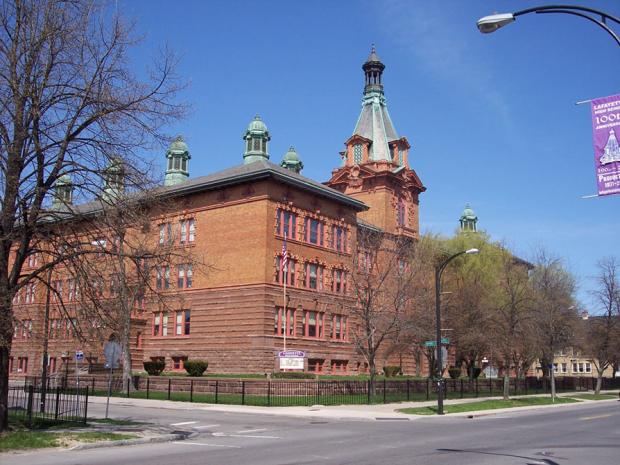School Board Election Post-Mortem
Just prior to last week’s Buffalo school board election, the Buffalo News very helpfully published a facsimile of a ballot on its editorial page, along with an urgent appeal to West District voters to write-in board president James Sampson’s name at polling stations. Sampson had been removed from the ballot by the county election board and state Supreme Court because his nominating petitions lacked the required 500 valid signatures.
The prospect of Sampson losing his board seat, and the probable loss of a five-member conservative majority, seemed to produce a high degree of dismay at the News, which several days earlier had warned of “a calamity” if this were to happen. School district “reform” would be placed in critical jeopardy, readers were told.
As things turned out, the results were even worse than the News feared. The voters not only retired Sampson, they voted in Hope Jay to replace North District member Jay McCarthy, thus producing a 6-3 majority weighted against very important elements of the “reform” program of the present five-member majority, which has been supported with ideological zeal by the newspaper. The fact is, last week’s election resulted in a sharp rebooting of the school board, and, inarguably, a shift to the left. It also seemed to reflect a recognition of educational policy changes and challenges on both the state and national levels. Much has been said about the disharmonious, sometimes acrimonious tone of board deliberations, but this amounts to more than a prospective change in tone. We’re not looking at an infusion of a Bernie Sanders-style socialism, only a more or less conventional liberal positioning, but that means a redirection from the rightist tilt and agenda of the present one-vote majority. “It’s a re-creation of the board,” said Kevin Miller, a professor of exceptional education at Buffalo State College, and a student of the Buffalo school system. “It’s exciting.”
The soon-to-be newly constituted majority will almost surely be much less in favor of the expansion of city charter schools, along with the draining of money from the system. It will be a great deal less inclined to continue the acrimonious relations with the teachers union, which has been without a new contract for 12 years and is locked in stalemated negotiations with the system. (It’s also pursuing a complaint at the state’s Public Employee Relations Board about the school board’s alleged bad faith.) The new majority won’t be likely to share the old one’s enthusiasm for using the state’s standardized student tests to evaluate teacher competence, a bitterly contested application around the country. (“The tests weren’t designed to test teachers,” Miller said. “They’re made to compare students with each other. They’re being misused.”)
In some important respects, both the board conservatives and the newspaper have seemed out of touch with informed opinion, social science findings, and national and state developments. After years of trying to tie teachers’ employment to student test results—particularly those that are part of the national Common Core Curriculum—both the Obama administration and New York State have been walking this back, decoupling the tests and teacher evaluations. The board’s old majority, and its journalistic ally, usually seemed oblivious to these controversies and developments, and to educational writing and research in general. Opt Out, the national mass movement to keep children from having to take the mandated standardized tests, with millions of resisting parents and children, only drew grouchy complaints from the News and virtually no apparent attention from the board majority, even when member-at-large Barbara Seals Nevergold brought it up.
“There is research on good teaching,” Miller noted, and he said that there are promising methods for improving teaching and education without the raft of tests, including Formative Assessment, a methodology using regular spot monitoring of a student’s achievement.
The majority bloc on the board had set its sights on more charters and the expanded use of test results, and this was sold as “reform” rather than privatization and corporatizing of the public school system.
The very able former veteran Buffalo school administrator and interim superintendent Amber Dixon published a News editorial-page essay this week in which, among other better advice, she warned new members against bringing personal philosophies to their board roles. But different educational and political philosophies seem to be important at this juncture, and to provide some hope that this board can support genuine, wholesome change.

